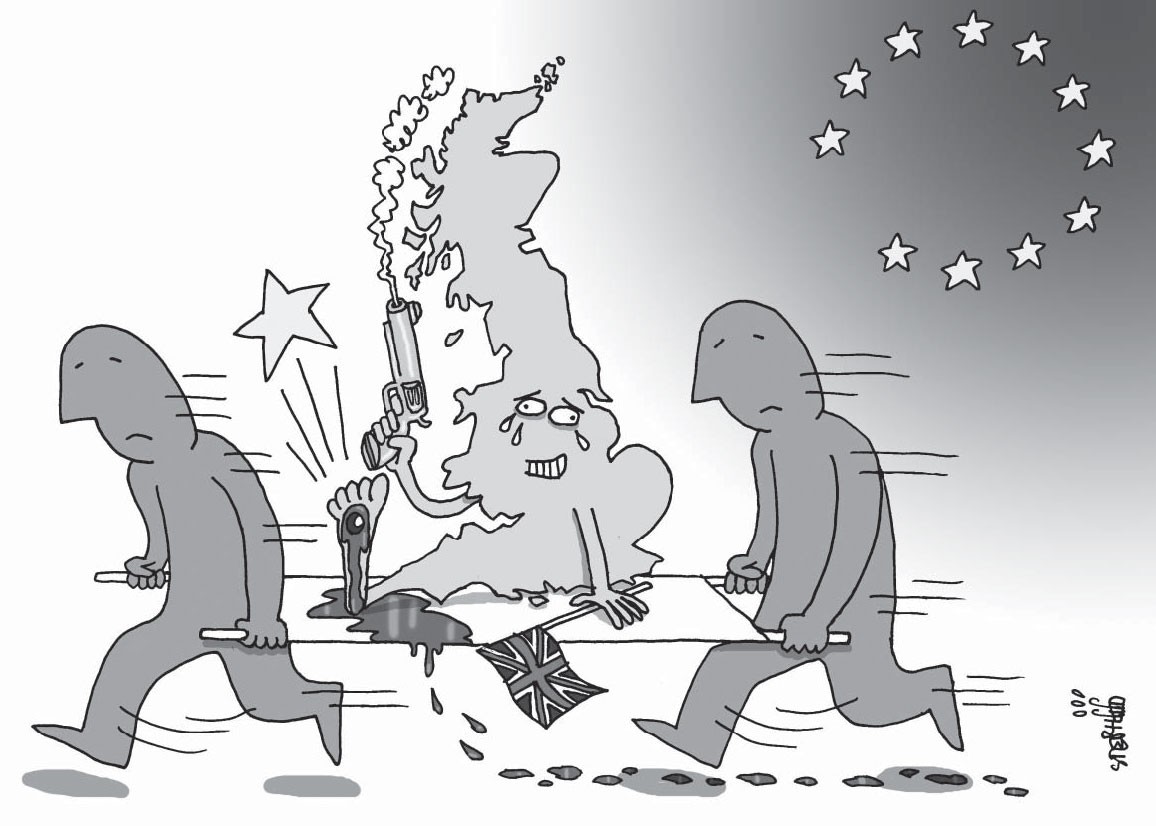Brexit, Duterte and the formidable power of voters
Change Size
 (-/-)
(-/-)
O
n June 23, a majority of the British people decided to leave the EU in a referendum, and on June 30 Rodrigo Duterte will be inaugurated as the new president of the Philippines. At first glance, there seems to be no direct connection between these two events, but with a closer look one discovers that both decisions were highlighting the power of nationalist and populist sentiment among ordinary voters.
Fear about their individual futures was one of the decisive push factors for many voters’ decisions. This anxiety was responded to with nostalgic and nationalistic policy options provided by populist politicians and movements.
In the Philippines, voters wanted a strong man as leader who would get tough with fighting crimes. Duterte has already announced he will strengthen the powers of the military and the police, in a move that might be beneficial for crime reduction but detrimental for democracy and human rights.
The high number of votes for retired general Prabowo Subianto in the 2014 presidential elections in Indonesia showed that a large number of Indonesians think in a similar way. In the UK, anxiety about immigration was one of the main driving factors for the Leave vote. This has nothing directly to do with the current refugee crisis in Europe, but immigration from other EU member states.
In times of globalization, the British voted for a self-imposed isolation. The British referendum may serve as proof that campaigns of fear and scaremongering can be successful if a majority of voters follow the statements of nationalist and populist groups.
Nearly all world leaders and international economic organizations had warned that a vote to leave the EU would most probably lead to considerable damage to the British economy, but the feeling of nationalism and cultural exceptionalism was more attractive for many voters.
The EU is built on liberal values and pooled sovereignty. This achievement is increasingly threatened by nationalist right-wing populism that denies the equality of humans and demands privileges for members of the ethnic and religious majority group. Similar developments can be seen in many other European countries such as France or the Netherlands, where far-right figures such as Marine Le Pen and Geert Wilders are possible government leaders in the coming years.
This phenomenon is also on the rise in Indonesia where the number of violent attacks against ethnic, religious and other minority groups has increased in recent years.
Populism was also a major feature of the Philippine elections and the British referendum because anti-movements do not have real solutions to offer. It is always easier to get a huge and diverse crowd against something, but far more difficult to get things done better. Philippine president Duterte will soon see his limits.
However, here lies the danger since he will probably not admit that he has promised too much, but rather blame his political adversaries in the other political institutions and demand more presidential powers, which could turn the country toward authoritarianism.
In the British case, Brexit supporters promised both a flourishing economy and control over immigration. Many voters were not only influenced by populists’ promises but also by nostalgia. Tellingly, the older voters in the UK were far more willing to believe in the thought that “closing the doors” would bring back those “good old times”. People aged over 50 years felt voted overwhelmingly with “Leave” whereas the younger generations who grew up in a united Europe felt much less national pride and voted with “Remain”. According to voter statistics, 64 percent of those aged under 24 years wanted to stay in the EU.
In Southeast Asia, there is also widespread nostalgia, even for the authoritarian rules of dictators such as Soeharto or Ferdinand Marcos. The latter’s only son, Ferdinand “Bongbong” Marcos Jr. nearly won the vice-presidential post in the Philippines. In Indonesia, many still have a feeling of “longing for Soeharto”, who provided political stability and economic growth, and some of his family members have already returned to politics.
In a democracy, voters are the sovereign and they are entitled to vote for whatever they wish. Even if the election campaigns are influenced by fear, nationalism and populism, everybody has to accept the voters’ decision. The British have voted for economic recession plus international isolation and have to suffer the pain thereof in the years to come. The Philippines have voted for Duterte and so nobody should be surprised about a sharp rise in extra-judicial killings, police and military violence, disappearing civil liberties and authoritarian tendencies.
Whether we like it or not, we are living in a globalized world, which makes people and countries increasingly interconnected. The EU and the ASEAN Economic Community are examples of regional communities bringing people and markets closer together.
However, it seems that people in many parts of the world do not embrace the new opportunities and chances for international cooperation, but instead vote for backward-oriented nationalism and anti-foreigner resentment.
____________________________________
Ririn Sefsani is program manager for Kemitraan (Partnership for Governance Reform) in Jakarta. Patrick Ziegenhain is visiting professor at the Asia-Europe Institute, the University of Malaya, Kuala Lumpur.









